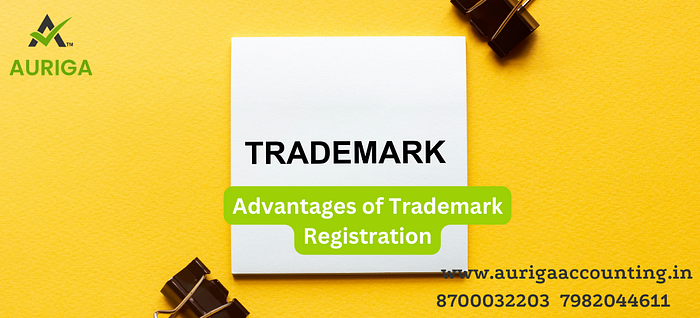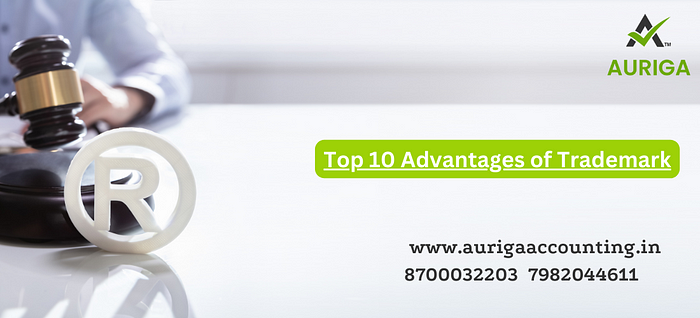
Registering a trademark is a critical measure for any business aiming to safeguard its brand identity and prevent the unauthorized use of similar trademarks by other entities. The formal registration of a trademark provides legal protection against infringement, a crucial asset in navigating potential legal conflicts.
Furthermore, a registered trademark can significantly enhance a business’s market value by contributing to its reputation and goodwill. This legal recognition can facilitate the business’s expansion into new markets, as the established trademark aids in building brand awareness and identity in unfamiliar territories.
Additionally, trademark registration plays a pivotal role in helping a business carve out a distinct identity and stand out from its competitors. A thoughtfully designed trademark has the power to convey a business’s values, mission, and personality, fostering an emotional connection with customers and nurturing brand loyalty.

Why is a trademark important for business?
- Securing trademark registration is an indispensable element in the establishment and sustained success of a business. It serves as a shield for your brand’s distinct identity, preventing others from adopting similar marks or names that could potentially confuse customers.
- Beyond safeguarding your brand’s uniqueness, trademark registration offers legal protection, empowering you to take legal recourse against any infringement on your rights. This proactive approach not only helps sidestep expensive legal battles but also acts as a bulwark for your intellectual property.
- Additionally, the registration of your trademark holds the potential to elevate the value of your business by fostering brand recognition and customer loyalty. This strategic move can confer a competitive edge, endowing your business with a unique identity within the market landscape.
- Expanding your business, whether on a domestic or international scale, becomes more feasible through trademark registration. By securing trademark protection in diverse regions, you fortify your brand’s identity and reputation, easing the process of entering untapped markets.
- Furthermore, beyond the tangible benefits, trademark registration imparts a sense of legitimacy and credibility to your business. This, in turn, instills confidence in customers, fostering trust and encouraging them to invest in your products or services.

Top 10 Advantages of Trademark
Legal Protection: The act of registering your trademark serves as a robust legal safeguard, enabling you to take legal measures against any encroachment on your rights. This extends to unauthorized use of your brand, logo, or product name, ensuring that you have the legal recourse to address such infringements.
Brand Identity: The registration of a trademark plays a pivotal role in cultivating a distinctive brand identity for your business. This differentiation from competitors contributes to an enhanced reputation and goodwill, solidifying your brand’s unique standing in the market.
Competitive Advantage: Acquiring a registered trademark positions your business strategically by conferring a competitive advantage. This advantage is rooted in the establishment of a robust brand identity that acts as a deterrent, preventing others from adopting similar names or logos.
Exclusive Rights: Trademark registration endows you with exclusive rights, granting the authority to utilize your trademark solely for your products or services. This exclusivity acts as a barrier, preventing others from employing it for comparable offerings.
Business Expansion: The registration of your trademark facilitates the expansion of your business into new markets, both locally and internationally. By establishing brand recognition and mitigating the risk of infringement, the process of entering new territories becomes smoother.
Marketing Tool: A registered trademark serves as a potent marketing tool, fostering brand recognition, cultivating customer loyalty, and setting your products or services apart from those offered by competitors.
Asset Value: Beyond its tangible aspects, a registered trademark contributes to the overall value of your business. This intangible asset can be leveraged through licensing, sale transactions, or as collateral for loans.
Prevention of Rebranding: Registering your trademark preemptively averts the need for costly and time-consuming rebranding in the event of infringement by a competitor.
Deterrence of Infringement: The existence of a registered trademark serves as a deterrent, dissuading others from infringing on your rights and utilizing your brand name or logo.
Credibility: A registered trademark imparts credibility to your business, instilling confidence in customers and encouraging them to trust and invest in your products or services.
Frequently Asked Questions [FAQs]
1. What is the cost of trademark registration?
Ans. The government fee for trademark registration is Rs. 4500 per application per class for individuals.
2. When can I use TM on my logo?
Ans. You can use the “TM” symbol on your logo or any other mark as soon as you start using it to promote or sell your products or services. The “TM” symbol is a way to indicate that you claim trademark rights in your mark, even if you have not yet applied for or obtained a formal trademark registration from the relevant government agency.
Ans. Companies use the “TM” symbol to indicate that they claim trademark rights in their mark. This symbol can be used even before the company has obtained a formal trademark registration from the relevant government agency.
4. Who is the owner of the trademark?
Ans. The owner of a trademark is the individual or legal entity that has legal rights to use and protect the mark. This can include individuals, businesses, organizations, or other entities that use a particular symbol, word, or phrase to identify their goods or services.
5. How do you avoid Trademark objection?
Ans. To avoid trademark objections, it is important to conduct a thorough search for existing trademarks, ensure the application is complete and accurate, and meet all legal requirements for registration. Additionally, applicants should ensure that their trademark is distinctive and does not violate any other trademark laws or regulations. Responding promptly and adequately to any objections raised by the Registrar of Trademarks is also crucial to avoid delays or rejection of the trademark application.
6. What is the time limit for a trademark objection reply?
Ans. The duration of applying for trademark objection is 30 days from the date of receipt of notice.
7. What are the fees for Trademark objection?
Ans. 1. There is no government fee for trademark objection.
2. The professional fee for trademark objection is ₹1500/-.
Ans. Yes, trademarks are considered as intellectual property assets and can be bought and sold like any other property. When a trademark is sold, it is typically done through a legal agreement between the parties involved, known as a trademark assignment agreement.

